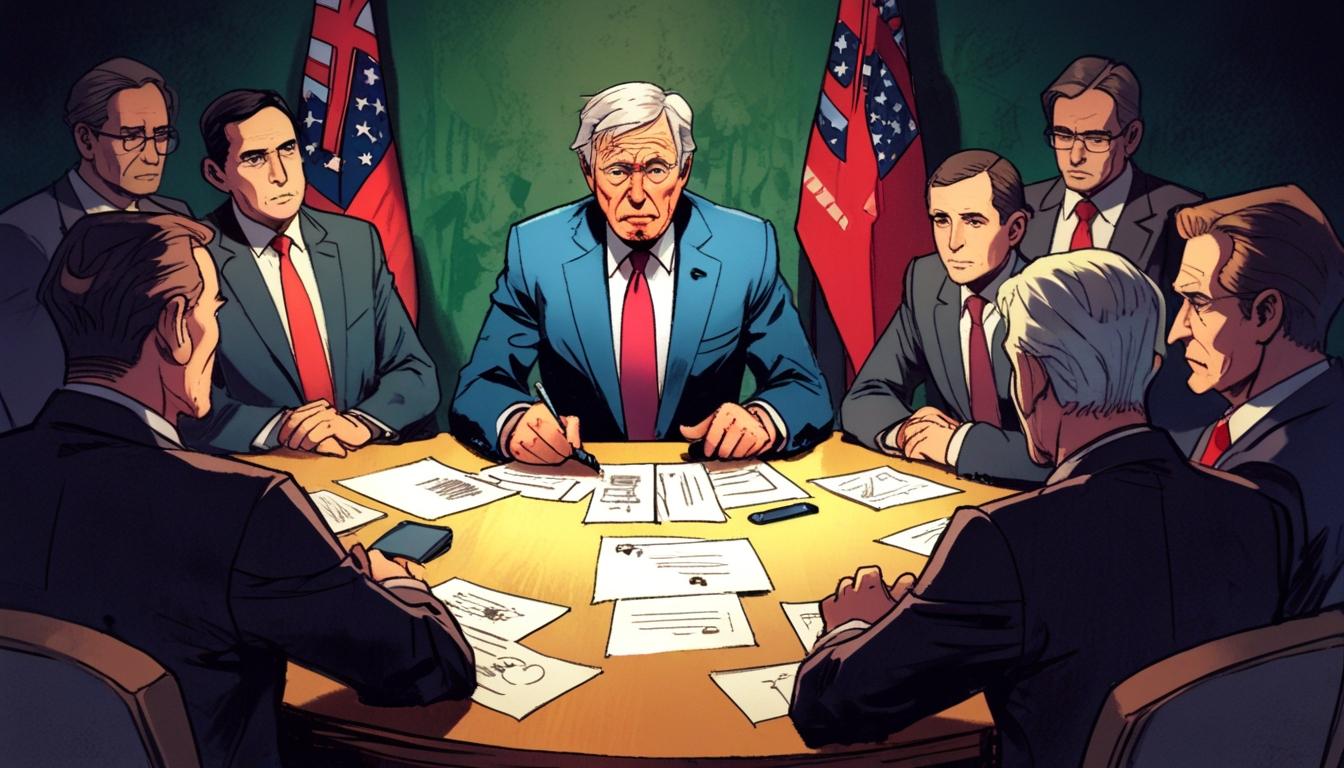In recent discussions surrounding economic policy, former President Donald Trump’s tariff strategy has garnered attention, drawing comparisons to biblical references for its seemingly unfathomable nature. Analysts are exploring various theories behind Trump’s approach, with some speculating he aims to devalue the dollar or revive America's manufacturing sector lost to globalisation. Regardless of the rationale, it appears the strategy may also be about asserting dominance on a global scale, with British science fiction author Charles Stross likening it to nations approaching Trump as "terrified shopkeepers pleading for mercy from a mafia don."
Amid these discussions, UK Labour leader Keir Starmer is reportedly looking to bring online safety regulations to the forefront in upcoming trade negotiations with the United States. This initiative could potentially alter existing rules regarding the Online Safety Act and copyright, which some believe inhibit US technology companies from utilising British intellectual property. Starmer's approach signals a willingness to adapt UK policies in the quest for more favourable trade relations.
Nonetheless, Trump's fervour for tariffs has a long history. Author Bob Woodward, in his book "Fear," recounts dialogues with Gary Cohn, Trump's erstwhile chief economic adviser, who attempted to explain that Trump’s belief in traditional heavy industries was no longer aligned with an evolving American economy characterised by service and high-tech industries. In response to Cohn’s frustrations, Trump simply stated, “I just do. I’ve had these views for 30 years,” highlighting the lasting nature of his industrial vision.
Recently, this vision has expanded to include the manufacturing of Apple iPhones within the United States. White House Press Secretary indicated that Trump “absolutely” believes that the labour force and resources are available to facilitate such a shift. Critics, however, argue that the intricate skill set required to assemble an iPhone is not widespread in a nation where manufacturing has significantly declined due to globalisation. The supply chain complexity involved in producing an iPhone, which integrates components from 43 different countries, demonstrates the challenges presented by the current tariff regime.
To navigate these challenges, it has been reported that Apple has proactively prepared for tariff implications. Cargo planes loaded with iPhones from China and India were staged to arrive in the United States prior to the tariffs being enforced, allowing the company to maintain an inventory sufficient for the launch of the iPhone 17 ahead of the Christmas season.
The difficulties of restoring manufacturing domestically may be illustrated through the experiences of TSMC, a leading silicon chip manufacturer. With a new high-end fabrication plant under development in Arizona, TSMC's decision was influenced by geopolitical factors and the allure of subsidies from the Biden administration. However, the establishment of this facility has encountered unforeseen challenges, particularly in securing qualified American talent. TSMC found it necessary to send 600 engineers to Taiwan for extensive training, and subsequently, recruit additional engineers from Taiwan to fulfil the operational needs of the Arizona plant. This training process can range from two weeks to 18 months, and the company projects that even once operational, its production costs in Arizona will exceed those in Taiwan by 50%.
This situation underscores the complexities of repatriating manufacturing, indicating that substantial structural changes are not easily achieved within a single electoral cycle. The implications of such endeavours raise questions about the sustainability and practicality of reversing decades of globalisation within the modern American economy.
Source: Noah Wire Services
